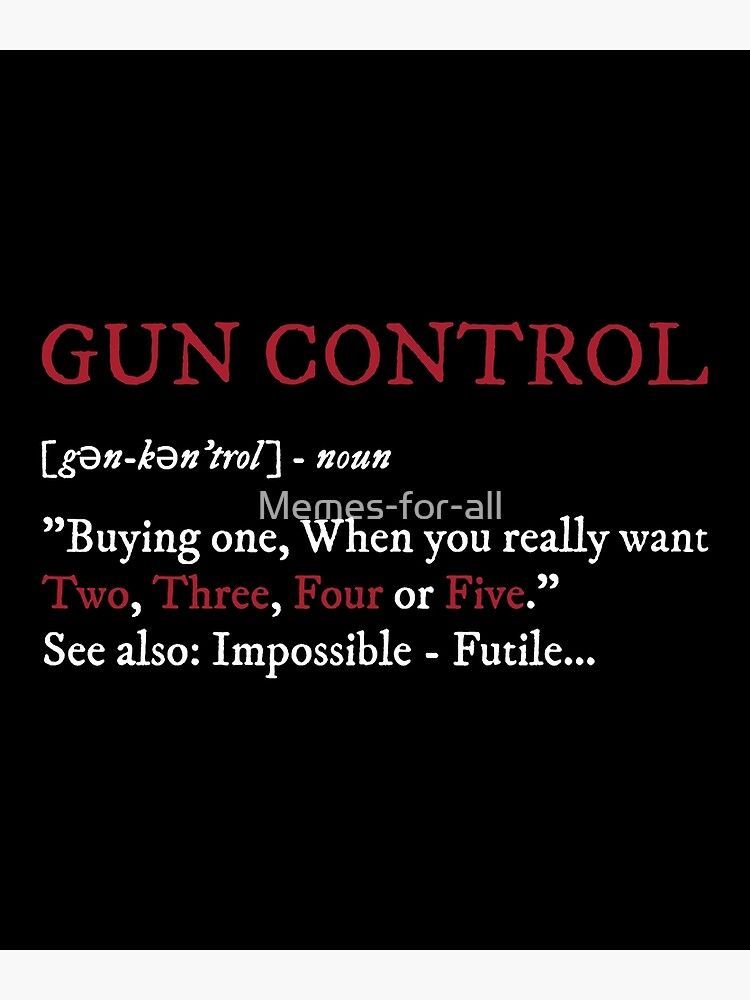Why Weren’t Liberals Screaming for Gun Control After Trump Was Shot?
How Democrats’ Selective Outrage Exposed the Truth About Gun Control

Introduction
Every time there’s a mass shooting, a tragedy in a school, or violence that grabs national headlines, the Democratic Party and its allies in the media roll out the same script. “Do something!” is the cry. Stricter laws, tighter background checks, bans on certain weapons — the policy prescriptions are ready before the facts are even known.
But when Donald Trump was shot, the outrage machine went strangely quiet. This wasn’t some random act of violence in a back alley. This was an assassination attempt on a sitting president, a man who has dominated the American political stage for nearly a decade, now back as President 47. If there was ever a moment to push for sweeping gun restrictions, this was it. And yet the expected calls from liberals to “ban the guns” or “tighten the laws” never arrived with their usual volume.
Why?
Why did Democrats, who supposedly see firearms as the root of America’s violence problem, avoid turning this event into their rallying cry? Their silence tells us more than their words ever could.
Selective Outrage and Political Convenience
Outrage in American politics isn’t about principle. It’s about leverage. Tragedies become fuel for agendas. Children killed in a school? That’s leverage. A grocery store shooting? That’s leverage. A nightclub massacre? That’s leverage.
But when the victim is Donald Trump — the man the left has vilified as an existential threat to democracy, painted as a fascist, compared to Hitler — the calculation changes.
To turn the Trump shooting into a reason for stricter gun laws would require Democrats to do something they cannot stomach: portray Trump as a sympathetic victim. To advocate loudly for gun control in this case would mean centering Trump, acknowledging his humanity, and admitting that political violence is unacceptable no matter who it targets. That’s not a place the modern left is willing to go.
So instead of consistency, we got silence. Or worse, deflection. Some media coverage bent over backwards to downplay the political dimensions of the act, focusing instead on procedural failures, the shooter’s mental state, or vague “security gaps.”
The Double Standard in Action
Imagine the roles reversed. Suppose a gunman had taken a shot at Joe Biden, Kamala Harris, or any high-profile Democrat. Do we even need to imagine? We know what the reaction would be.
- Wall-to-wall media coverage filled with emotional appeals about America’s “gun epidemic.”
- Immediate legislative pushes in Congress to ban so-called “assault weapons.”
- Celebrity activism campaigns flooding social media with hashtags and virtue signals.
- Endless editorials framing conservatives and Republicans as morally responsible for tolerating “gun culture.”
It would be relentless, overwhelming, and coordinated.
But when Trump was shot? Crickets. Sure, there were statements condemning violence, but the volume, the urgency, the “never again” energy was missing. The same people who weaponize tragedy for politics fell silent when it came to Trump.
That silence was not accidental. It was calculated.
The Political Cost of Sympathy
Why the silence? Because sympathy for Trump is toxic to the left’s narrative.
For years, Democrats and their media allies have told America that Trump is the great villain, a man who represents authoritarianism, racism, and the destruction of democracy itself. He is the bogeyman they fundraise against, the figure they use to mobilize their base, the “other” they need in order to justify their own moral superiority.
To respond to the Trump shooting with the usual “guns are the problem” talking points would require them to show compassion for him — and that would undermine the very foundation of their politics.
So instead, they treated it as an inconvenient story, one best downplayed and quickly moved past.
What About the Gun?
Here’s the thing: if the left truly believes that guns are the problem, that firearms themselves are the great evil in American life, then Trump’s shooting should have been the ultimate proof. The Secret Service, the military, and law enforcement couldn’t prevent a determined attacker from trying to take down the president. What clearer evidence could there be that guns are dangerous, that stricter controls are necessary, that no one is safe?
But Democrats didn’t make that case. And that reveals something critical: guns aren’t really the enemy. Guns are a proxy. The real enemy, in their narrative, is political opposition. Gun control is a weapon used selectively — loudly when it’s politically useful, quietly shelved when it’s not.
If the shooting of Donald Trump couldn’t stir them into action, then maybe the issue isn’t about “saving lives” at all.
Gun Control as a Narrative Tool
When you look closely, gun control debates in America aren’t about solving crime. They’re about shaping culture. For the left, gun control is a signal: “We are the party of compassion, safety, and reason. They are the party of violence, greed, and guns.”
But when the violence hits someone they’ve spent years demonizing, the narrative doesn’t work. Suddenly, gun control would mean protecting the very man they want destroyed politically. And so the talking points vanish.
It shows that for Democrats, gun control is not a principle. It’s a rhetorical tool. And like any tool, they only use it when it builds their house. When it doesn’t fit the project, it goes back in the toolbox.
The Illusion of Consistency
Liberals love to posture as if they are the consistent moral voice in American politics. But their silence after Trump was shot reveals the hollowness of that claim.
Consistency would mean acknowledging that political violence is unacceptable, no matter who the target is. Consistency would mean advocating for the same policies after Trump’s shooting that they push after every other high-profile act of gun violence.
Instead, they revealed the partisan nature of their outrage. Gun control is not a universal principle for them. It is situational, contingent, and opportunistic.
What This Says About the Future of Gun Politics
If Democrats couldn’t seize the Trump shooting as a moment for their cause, then what does that mean for the broader debate over guns?
It means that the issue will remain what it has always been: a political football. Gun control will rise and fall in the news cycle depending not on principle, but on who the victims are and whether it advances the narrative.
That’s not how serious policy is made. That’s how agendas are marketed. And the American people see through it.
Why This Matters
Gun control has always been presented as a matter of life and death, a moral imperative that transcends politics. But the silence after Trump was shot shows us the truth: it’s not about morality, it’s about power.
If Democrats were truly consistent, they would have responded to Trump’s shooting with the same urgency, passion, and legislative demands that they unleash after any other tragedy. But they didn’t. Because deep down, their gun control crusade has never been about guns. It’s been about narrative control.
This matters because hypocrisy undermines trust. If Democrats want America to believe they are serious about solving gun violence, they must apply their outrage consistently — even when the victim is someone they despise.
But they won’t. And that silence speaks louder than any speech
References
Lott, J. R. (2016). The War on Guns: Arming Yourself Against Gun Control Lies. Regnery Publishing.
Pew Research Center. (2023). Public Opinion on Gun Policies.
Cook, P. J., & Goss, K. A. (2014). The Gun Debate: What Everyone Needs to Know. Oxford University Press.
Washington Post, CNN, and Fox coverage following the Trump shooting (reviewed July–August 2024).
Disclaimer
The views expressed in this post are opinions of the author for educational and commentary purposes only. They are not statements of fact about any individual or organization, and should not be construed as legal, medical, or financial advice. References to public figures and institutions are based on publicly available sources cited in the article. Any resemblance beyond these references is coincidental.











